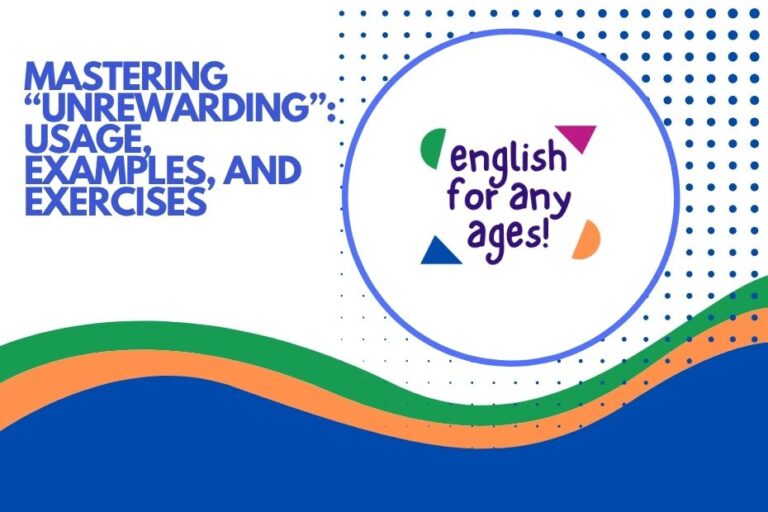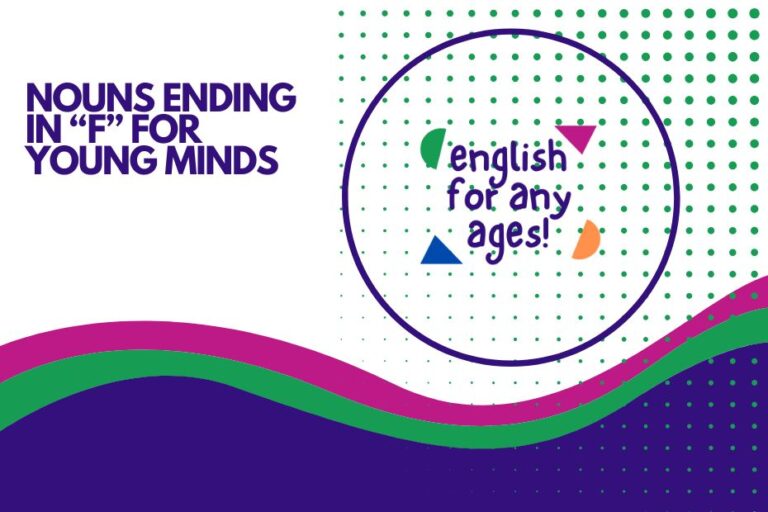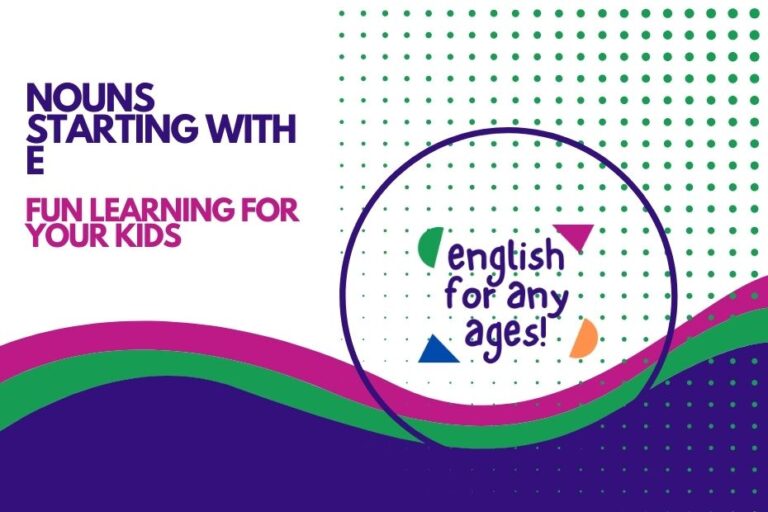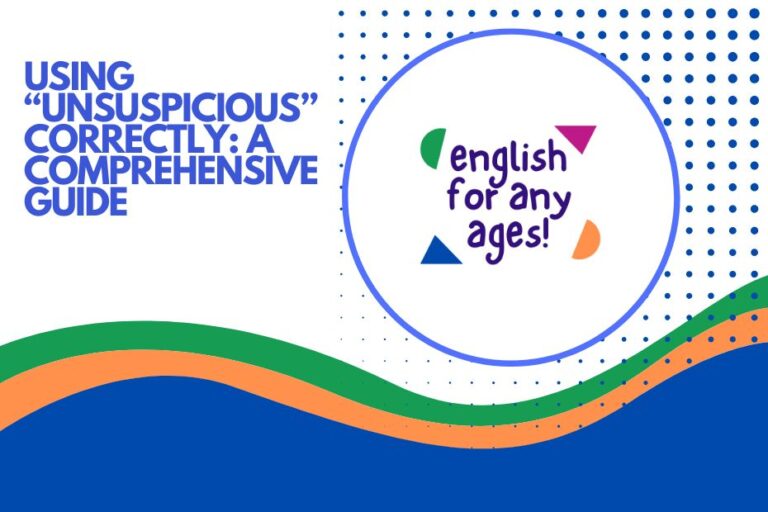Advice vs. Advise: Mastering the Nuances of Guidance
Understanding the difference between “advice” and “advise” is crucial for clear and effective communication in English. These two words, though closely related in meaning, play different grammatical roles.
“Advice” is a noun, referring to guidance or recommendations offered to someone. “Advise,” on the other hand, is a verb, meaning to offer guidance or recommendations.
Misusing these words can lead to confusion and undermine the credibility of your writing and speaking. This article provides a comprehensive guide to mastering the correct usage of “advice” and “advise,” complete with examples, rules, and practice exercises.
This guide is perfect for English language learners, writers, editors, and anyone who wants to improve their grammar skills.
By the end of this article, you will confidently distinguish between “advice” and “advise,” use them correctly in various contexts, and avoid common mistakes. You’ll also gain a deeper understanding of the nuances of giving and receiving guidance in English.
Table of Contents
- Introduction
- Definitions: Advice vs. Advise
- Structural Breakdown
- Types and Categories of Advice
- Examples of Advice and Advise
- Usage Rules: When to Use Advice vs. Advise
- Common Mistakes with Advice and Advise
- Practice Exercises
- Advanced Topics
- Frequently Asked Questions (FAQ)
- Conclusion
Definitions: Advice vs. Advise
The crucial difference between “advice” and “advise” lies in their grammatical function. Understanding this distinction is the first step towards using these words correctly.
Advice (Noun)
“Advice” is a noun that refers to a recommendation or guidance offered to someone, typically about what they should do. It is an uncountable noun, meaning it does not have a plural form (you cannot say “advices”).
It represents the concept of guidance itself. Think of it as the *thing* you give.
For example, “I need some advice on choosing a new car.” Here, “advice” is the thing the speaker needs.
Advise (Verb)
“Advise” is a verb that means to offer a recommendation or guidance to someone. It is an action – the act of giving advice.
It is a regular verb, meaning it follows standard conjugation patterns (advise, advised, advising).
For example, “I advise you to study hard for the exam.” Here, “advise” is the action the speaker is performing.
Structural Breakdown
Understanding how “advice” and “advise” fit into sentences is essential for using them correctly. Let’s examine their structural roles.
Advice in Sentences
As a noun, “advice” typically functions as the subject, object, or complement in a sentence. It often appears with articles (a, an, the) or quantifiers (some, much, little).
Here are some common sentence structures with “advice”:
- Subject: The advice was helpful.
- Object: I need some advice.
- Complement: That’s good advice.
- With a preposition: I acted on her advice.
Advise in Sentences
As a verb, “advise” functions as the main verb in a sentence, indicating the action of giving advice. It requires a subject and can take a direct object (the person being advised) and/or an indirect object (the advice itself, often in the form of a clause).
Here are some common sentence structures with “advise”:
- Subject + Verb: I advise.
- Subject + Verb + Object: I advise him.
- Subject + Verb + Clause: I advise that you study.
- Subject + Verb + Object + Clause: I advise him that he should study.
Types and Categories of Advice
Advice comes in many forms, depending on the context and the expertise of the person giving it. Here are some common categories of advice:
Professional Advice
Professional advice is guidance offered by someone with specialized knowledge or training in a particular field. This could include career counseling, business consulting, or technical support.
Personal Advice
Personal advice is guidance related to personal matters, such as relationships, lifestyle choices, or personal development. This type of advice is often sought from friends, family, or therapists.
Legal Advice
Legal advice is guidance on legal matters, provided by a qualified lawyer or legal professional. It involves interpreting laws and applying them to specific situations.
Financial Advice
Financial advice is guidance on managing money, investments, and financial planning, provided by a financial advisor or planner.
Medical Advice
Medical advice is guidance on health-related matters, provided by a doctor or other qualified healthcare professional. It involves diagnosing and treating medical conditions.
Examples of Advice and Advise
To solidify your understanding, let’s look at numerous examples of “advice” and “advise” in various contexts.
Advice Examples
The following table provides examples of “advice” used as a noun in different sentence structures. Notice how it functions as a subject, object, or complement.
| Sentence | Explanation |
|---|---|
| Her advice was invaluable during the crisis. | “Advice” is the subject of the sentence. |
| I need some advice on buying a new laptop. | “Advice” is the direct object of the verb “need.” |
| That’s a good piece of advice. | “Advice” is a complement describing “piece.” |
| He ignored my advice and made a mistake. | “Advice” is the direct object of the verb “ignored.” |
| She gave me a lot of helpful advice. | “Advice” is the direct object of the verb “gave.” |
| Take my advice and stay away from him. | “Advice” is the direct object of the verb “take.” |
| I followed his advice and it worked out well. | “Advice” is the direct object of the verb “followed.” |
| Can you give me some advice on this problem? | “Advice” is the direct object of the verb “give.” |
| I appreciate your advice. | “Advice” is the direct object of the verb “appreciate.” |
| His advice is always practical and useful. | “Advice” is the subject of the sentence. |
| The doctor’s advice helped me recover quickly. | “Advice” is the subject of the sentence. |
| I sought advice from a financial advisor. | “Advice” is the direct object of the verb “sought.” |
| She offered advice on how to improve my writing. | “Advice” is the direct object of the verb “offered.” |
| Their advice was to invest in real estate. | “Advice” is the subject of the sentence. |
| I value your advice on matters of the heart. | “Advice” is the direct object of the verb “value.” |
| Good advice is hard to come by. | “Advice” is the subject of the sentence. |
| He rejected all the advice he received. | “Advice” is the direct object of the verb “rejected.” |
| The lawyer gave me sound advice. | “Advice” is the direct object of the verb “gave.” |
| I need some career advice. | “Advice” is the direct object of the verb “need.” |
| Her advice changed my life. | “Advice” is the subject of the sentence. |
| He gave sound advice, but I didn’t listen. | “Advice” is the direct object of the verb “gave.” |
| She ignored my advice to save money. | “Advice” is the direct object of the verb “ignored.” |
| I asked for advice from my mentor. | “Advice” is the direct object of the verb “asked.” |
| The counselor’s advice was very helpful. | “Advice” is the subject of the sentence. |
| I acted on the advice of my friends. | “Advice” is the object of the preposition “on.” |
Advise Examples
The following table provides examples of “advise” used as a verb in different tenses and sentence structures. Notice how it expresses the action of giving advice.
| Sentence | Explanation |
|---|---|
| I advise you to be careful. | “Advise” is in the present tense. |
| The doctor advised him to rest. | “Advised” is in the past tense. |
| She is advising her client on the best course of action. | “Advising” is in the present continuous tense. |
| They advise against investing in that company. | “Advise” is in the present tense. |
| My lawyer advised me not to speak to the police. | “Advised” is in the past tense. |
| I would advise you to think carefully before making a decision. | “Advise” is used with the modal verb “would.” |
| He advised that we should leave early. | “Advised” is in the past tense, followed by a “that” clause. |
| The teacher advised the students to study hard. | “Advised” is in the past tense. |
| I strongly advise you to reconsider your decision. | “Advise” is in the present tense, modified by “strongly.” |
| The consultant advised the company on how to improve its efficiency. | “Advised” is in the past tense. |
| We advise all passengers to arrive at the airport early. | “Advise” is in the present tense. |
| She advised me to take a break. | “Advised” is in the past tense. |
| He advised against traveling during the storm. | “Advised” is in the past tense. |
| The expert advised on the best strategy. | “Advised” is in the past tense. |
| I advise that you seek professional help. | “Advise” is in the present tense, followed by a “that” clause. |
| The manual advises users to back up their data regularly. | “Advises” is in the present tense. |
| They advised him to invest in stocks. | “Advised” is in the past tense. |
| I advise her on financial matters. | “Advise” is in the present tense. |
| The book advised readers to be cautious. | “Advised” is in the past tense. |
| She advises clients on their marketing strategies. | “Advises” is in the present tense. |
| The doctor advised me to get more exercise. | “Advised” is in the past tense. |
| I advise you not to trust him. | “Advise” is in the present tense. |
| She advised me on which courses to take. | “Advised” is in the past tense. |
| He advises companies on their sustainability efforts. | “Advises” is in the present tense. |
| They advised against swimming after eating. | “Advised” is in the past tense. |
Usage Rules: When to Use Advice vs. Advise
To avoid confusion, follow these key rules when using “advice” and “advise”:
Rule 1: Noun vs. Verb
The fundamental rule is to remember that “advice” is a noun and “advise” is a verb. Use “advice” when you need a noun to represent guidance, and use “advise” when you need a verb to express the action of giving guidance.
When you need to describe the act of giving guidance, use advise. When you need to name the thing that is guidance, use advice.
Rule 2: Subject-Verb Agreement with Advise
As a verb, “advise” must agree with its subject in number and tense. For example, “I advise,” “he advises,” “they advised.” Pay attention to the subject and use the correct form of the verb.
Rule 3: Using “Advise” with Objects
“Advise” often takes a direct object (the person being advised) and can also be followed by a “that” clause or an infinitive phrase. For example, “I advise him to study,” or “I advise that he study.”
Rule 4: Collocations with “Advice”
Certain phrases commonly use “advice.” These collocations can help you remember the correct usage. Some common collocations include: “take advice,” “give advice,” “seek advice,” “follow advice,” “ignore advice,” and “a piece of advice.”
Here’s a table summarizing the key differences:
| Feature | Advice | Advise |
|---|---|---|
| Part of Speech | Noun | Verb |
| Meaning | Guidance, recommendation | To offer guidance, to recommend |
| Example | I need some advice. | I advise you to be careful. |
| Plural Form | None (uncountable noun) | Advises, advised, advising |
Common Mistakes with Advice and Advise
Even experienced English speakers sometimes make mistakes with “advice” and “advise.” Here are some common errors to avoid:
Misspelling “Advise” as “Advice” (Verb)
One of the most frequent mistakes is using the noun “advice” in place of the verb “advise.”
Incorrect: I advice you to study hard.
Correct: I advise you to study hard.
Using “Advice” as a Verb
Another common error is attempting to use the noun “advice” as a verb.
Incorrect: He advices me on financial matters.
Correct: He advises me on financial matters.
Incorrect Verb Tense with “Advise”
Using the wrong tense of the verb “advise” can also lead to errors.
Incorrect: I am advice you to be cautious.
Correct: I am advising you to be cautious.
Here’s a table summarizing common mistakes and corrections:
| Incorrect | Correct | Explanation |
|---|---|---|
| She gave me a good advice. | She gave me good advice. | “Advice” is uncountable; no article needed before “good.” |
| I advice him to go. | I advise him to go. | “Advise” is the verb form. |
| He advices me often. | He advises me often. | Subject-verb agreement (third person singular). |
| They gave me many advices. | They gave me much advice. | “Advice” is uncountable; use “much” instead of “many.” |
| I am going to advice him. | I am going to advise him. | “Advise” is the verb form. |
Practice Exercises
Test your understanding with these practice exercises. Each exercise focuses on different aspects of using “advice” and “advise” correctly.
Exercise 1: Fill in the Blanks
Fill in the blanks with the correct form of “advice” or “advise.”
| Question | Answer |
|---|---|
| 1. I need some ________ on choosing a career path. | advice |
| 2. The doctor ________ me to get more rest. | advised |
| 3. He always gives sound ________. | advice |
| 4. I ________ you to be careful when driving in the rain. | advise |
| 5. She sought ________ from a financial planner. | advice |
| 6. They ________ against swimming in the ocean after dark. | advise |
| 7. His ________ was to invest in technology stocks. | advice |
| 8. I ________ that you consult with a lawyer. | advise |
| 9. Can you give me some ________ on improving my writing skills? | advice |
| 10. The manual ________ users to back up their data regularly. | advises |
Exercise 2: Correct the Sentences
Identify and correct the errors in the following sentences.
| Incorrect Sentence | Correct Sentence |
|---|---|
| 1. He gave me a very good advice. | He gave me very good advice. |
| 2. I will advice you on what to do. | I will advise you on what to do. |
| 3. She advices me on my career choices. | She advises me on my career choices. |
| 4. They gave me many advices. | They gave me much advice. |
| 5. I am going to advice him about the situation. | I am going to advise him about the situation. |
| 6. The doctor’s advice was very helpfull. | The doctor’s advice was very helpful. |
| 7. I need an advice on this matter. | I need advice on this matter. |
| 8. He is adviceing me on my investments. | He is advising me on my investments. |
| 9. I will take your advice and do it. | Correct as is. |
| 10. She gave a sound advice to her friend. | She gave sound advice to her friend. |
Exercise 3: Sentence Construction
Create your own sentences using “advice” and “advise” in the given contexts.
| Context | Example Sentence (Advice) | Example Sentence (Advise) |
|---|---|---|
| Seeking guidance from a mentor | I sought advice from my mentor on career development. | My mentor advised me to network more. |
| Giving recommendations to a friend | I gave my friend some advice about her relationship. | I advised my friend to communicate openly with her partner. |
| Receiving information from a professional | The lawyer’s advice was invaluable during the legal proceedings. | The lawyer advised me not to speak to the media. |
| Offering counsel to a colleague | I offered my colleague some advice on managing their workload. | I advised my colleague to prioritize tasks. |
| Discussing financial matters | I need some advice on investing my savings. | My financial advisor advised me to diversify my portfolio. |
| Health and Wellness | His doctor’s advice was to exercise more. | His doctor advised him to cut down on sugar. |
| Travel Planning | I need some advice about the best time to travel. | My travel agent advised me to book early. |
| Home Improvement | I need some advice about painting the house. | The contractor advised me to use premium paint. |
| Education | I need some advice on choosing a university. | The counselor advised me to study hard. |
| Technology | I need some advice about which computer to buy. | The salesman advised me to buy the latest model. |
Advanced Topics
For advanced learners, let’s explore some more nuanced aspects of using “advice” and “advise.”
Formal vs. Informal Usage
While the basic rules remain the same, the formality of the situation can influence word choice. In formal writing or speech, it’s generally preferred to use complete sentences and avoid contractions.
In informal settings, contractions and simpler sentence structures are acceptable.
For instance, in a formal report, you might write: “The committee advised that the project be postponed.” In a casual conversation, you might say: “I’d advise you to wait.”
Idiomatic Expressions
Some idiomatic expressions use “advice” or “advise” in particular ways. Understanding these expressions can enrich your vocabulary and improve your fluency.
Examples include: “take someone’s advice with a grain of salt” (meaning to not completely trust someone’s advice), “a word to the wise” (meaning a piece of advice given to someone who is intelligent and will understand it), and “seek counsel” (a more formal equivalent of seek advice).
Frequently Asked Questions (FAQ)
Here are some frequently asked questions about “advice” and “advise”:
- Q: Is “advices” a word?
A: No, “advices” is not a standard English word. “Advice” is an uncountable noun and does not have a plural form.
- Q: Can I say “a piece of advices”?
A: No, you should say “a piece of advice.” Since “advice” is uncountable, you use “piece” as a unit to quantify it.
- Q: How do I remember which one is the noun and which one is the verb?
A: A helpful mnemonic is to remember that “advice” (the noun) ends in “ice,” just like the word “noun” itself has an “n.” “Advise” (the verb) ends in “ise,” which is similar to the ending of other verbs like “realise” or “exercise.”
- Q: Is it ever correct to use “advice” as a verb in informal speech?
A: No, even in informal speech, it is not grammatically correct to use “advice” as a verb. While some people might do it colloquially, it is considered an error.
- Q: What’s the difference between “counsel” and “advice”?
A: “Counsel” can be both a noun and a verb and is often used in more formal or legal contexts. As a noun, it is similar to “advice,” but often implies more formal or professional guidance. As a verb, it means to give counsel or advice.
- Q: Can I use “advise” without an object?
A: Yes, you can use “advise” without a direct object, but it usually implies that you are advising in general. For example, “I advise caution” or “Experts advise against it”.
- Q: What is the difference between “recommend” and “advise”?
A: “Recommend” and “advise” are similar, but “advise” often carries a stronger sense of authority or expertise. “Recommend” can be a more general suggestion, while “advise” suggests a more considered opinion based on knowledge or experience.
- Q: Should I always use “that” after “advise”?
A: No, using “that” after “advise” is optional. You can say “I advise that you study” or “I advise you to study,” both are correct. However, using “that” can sometimes make the sentence sound more formal.
Conclusion
Mastering the difference between “advice” and “advise” is a fundamental step towards improving your English grammar skills. Remember that “advice” is a noun representing guidance, while “advise” is a verb meaning to offer guidance.
By understanding their distinct grammatical roles and following the usage rules outlined in this article, you can confidently use these words correctly in your writing and speaking.
Continue practicing with the exercises provided and pay attention to how these words are used in various contexts. With consistent effort, you’ll avoid common mistakes and communicate more effectively.
Remember to always proofread your writing, and when in doubt, consult a dictionary or grammar guide.






